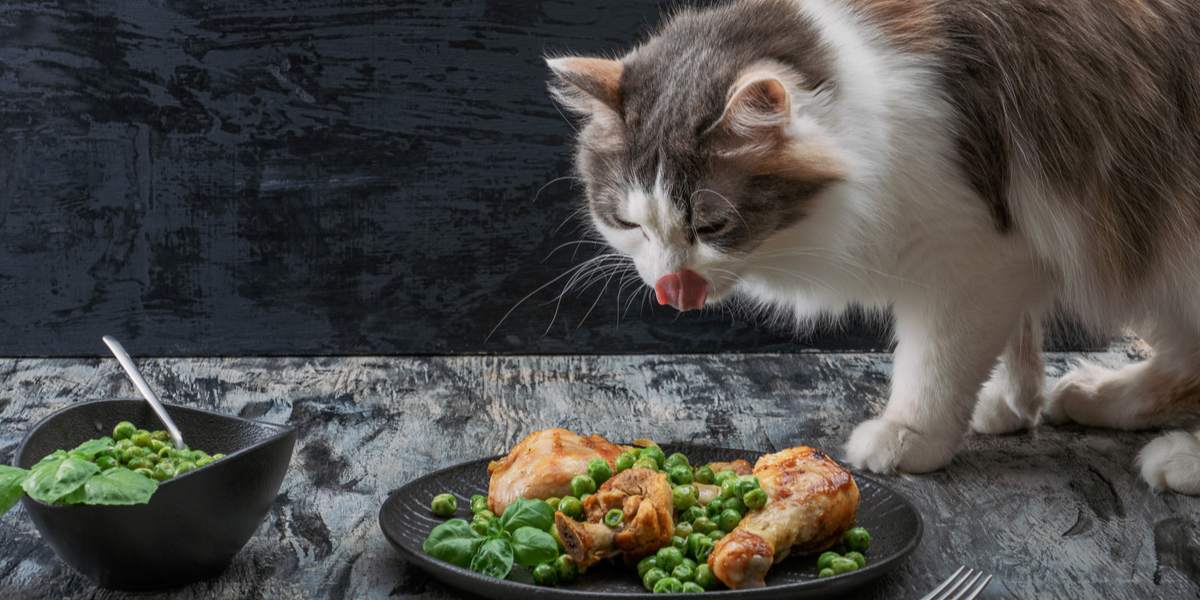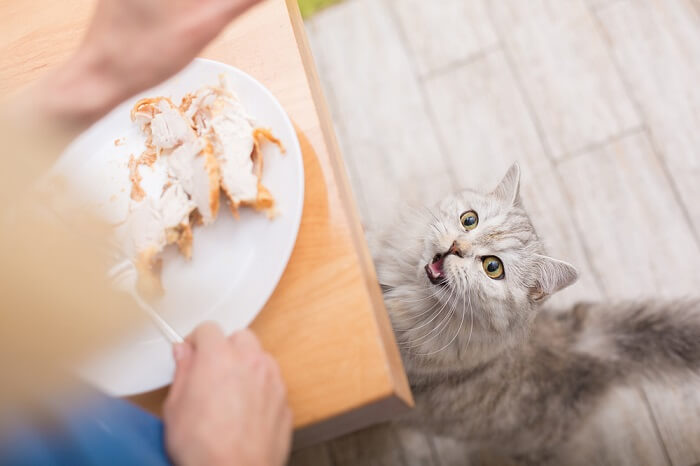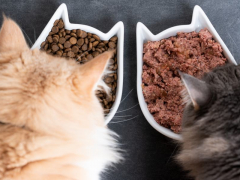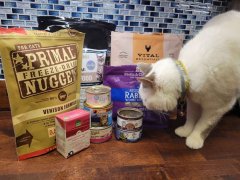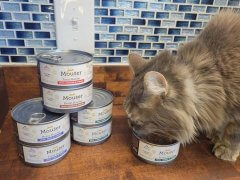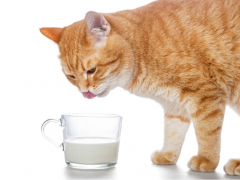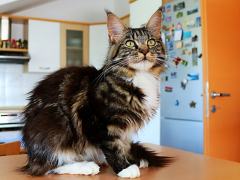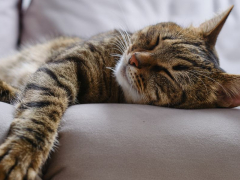If you share your home with a four-legged friend of the feline variety, you might occasionally catch them eyeing up your snacks.
Cats can eat turkey as long as it is fully cooked and given to them in moderation, without any seasoning or bones.Quick Overview: Can Cats Eat Turkey?
Toxic: No
Commonly Allergenic: Yes
Species Appropriate: No
How Often to Feed: Occasional
How Much to Feed: Supplemental
Summary of Content
Most pet parents know foods like chocolate and grapes are toxic to cats, and you might think twice about giving really fatty foods like fried chicken, doughnuts, or cream cakes! But what if the snack you’re eating is pretty healthy and nontoxic; can you share it with your purry pal?
Turkey is an example of a food that is pretty healthy for humans and nontoxic to cats, so perhaps your cat could have some turkey? Well, you’re right, cats can eat turkey, but there are a few things you should be aware of before you offer your cat a bite of your turkey lunch meat sandwich!
Is Turkey Good for Cats?
Only feed small pieces of cooked turkey with the skin and bones removed.
From the table of nutritional stats, it’s easy to see that turkey is an excellent option if you want to treat your feline friend to something tasty but nutritious. The low calorie count and the lack of fat and sugars mean you won’t end up with a podgy pussycat.
Therefore, they won’t be at high risk of health conditions associated with obesity, like diabetes, heart disease, and arthritis.
Cats need animal protein in their diet because they are obligate carnivores. Turkey breasts are high in protein, and your favorite feline needs protein for growth and to keep their tissues healthy. The protein will also help keep them feeling fuller for longer, meaning they’re less likely to beg for extra tidbits!
The B vitamins in turkey are helpful for many functions in your cat’s body, including cell communication, energy production, nerve signals, and red blood cell production. The spectrum of minerals within turkey meat will help keep your cat’s bones and teeth healthy and regulate their growth and metabolism.
How Much Turkey Can a Cat Eat?
If your cat hasn’t tried turkey before, it’s best to start with a small amount. Otherwise, you risk giving them a tummy upset, and no one wants to be cleaning up piles of vomit or diarrhea!
First, give a small piece of plain, cooked turkey breast, ensuring that the turkey skin and any turkey bones are removed.
A bit the size of the tip of your little finger should be plenty. If your purrfect pal seems to enjoy it and they don’t show any adverse symptoms over the next couple of days, you can try giving a little more. Still, giving two or three pieces of turkey the size of your thumbnail should be more than enough for one sitting!
If you’re using ground turkey breast rather than slices, try to estimate a similarly small amount.
Do Cats Like the Taste of Turkey?
Every cat is different, but since cats are obligate carnivores, they tend to enjoy the taste of meat, and turkey is no exception. However, if they’re not that fussed, don’t worry. There are plenty of other healthy human foods you can offer cats. Just make sure you do your research first.
How Often Can a Cat Eat Turkey?
The mainstay of a cat’s diet should be their nutritionally complete cat food. Whether it’s wet, dry, or a bit of both, complete cat food is finely tuned to contain the balance of nutrients that your cat needs to keep looking and feeling their best.
So, the last thing you want to do as a pet parent is upset this balance with too many treats! Of course, you might think turkey won’t do much harm because it’s healthy, but even healthy foods taking the place of specialist cat food could lead to nutritional deficiencies or make your cat unwell.
So, it’s best to stick to the rule of thumb that treats and tidbits shouldn’t account for more than 10% of your cat’s total food intake. As long as your cat doesn’t get much in the way of other treats, you could offer them a small amount of turkey breast once or twice a week.
Is Turkey Used in Commercial Cat Food?
Turkey is used in many commercial cat foods, including cat biscuits, cat meat, and cat treats. Because it’s an animal protein and low in fat and sugars, it’s a desirable ingredient when it comes to formulating a kitty diet.
Don’t forget, though, turkey breast and ground turkey are very different from turkey ham and turkey bacon, which are processed and can be very high in salt.
Also Read: The Best Turkey Cat Food Formulas
Is Turkey Bad for Cats?
Turkey is safe for cats to eat as long as it is cooked without seasoning, fats, and oils. Too much salt is bad for your cat, and pepper or chili might upset their stomach, so it’s best to avoid any seasoning or sauces at all.
Boiling or grilling turkey and removing the skin will keep the fat content down to avoid causing your cat a painful episode of pancreatitis.
You should also make sure any turkey you give to your cat is just the meat. Deli turkey and turkey lunch meat are fine, but if you offer the meat from a whole cooked turkey, remove any turkey bones. Turkey necks and turkey giblets can also be a choking hazard or cause a gut blockage, so stick to the breast meat.
You might be tempted to cook a whole dish for your cat, perhaps using turkey liver or turning the turkey breast into a mild curry or casserole.
However, turkey liver is likely to be too rich for your cat and might lead to vomiting, diarrhea, or pancreatitis. Ingredients like onions and garlic are toxic to cats, so offering plain turkey is much safer.
Summary
If you’re looking for a safe and nutritious human food treat for your cat, look no further than turkey. Just make sure that you only give a small amount and follow the above guidelines to keep your kitty safe and healthy.
Frequently Asked Questions
Is turkey harmful to cats?
Turkey breast with the skin removed is safe for cats to eat. However, cooking fats and seasonings as well as turkey bones or other ingredients can be risky. Therefore, you should only offer plain, grilled, or boiled turkey breast without bones or skin.
